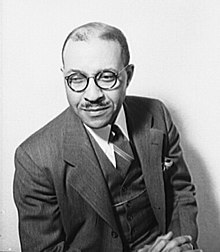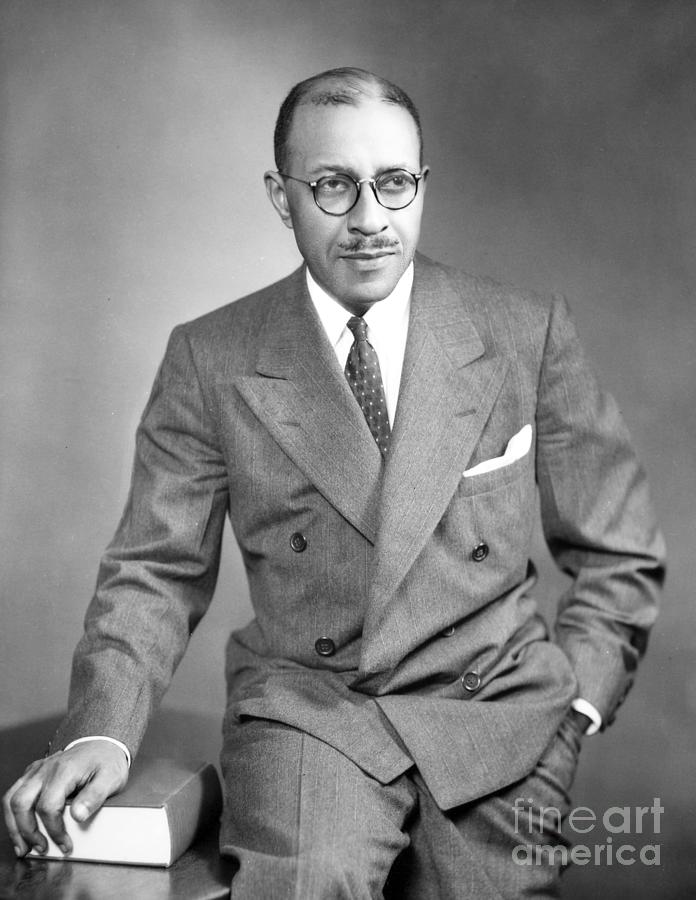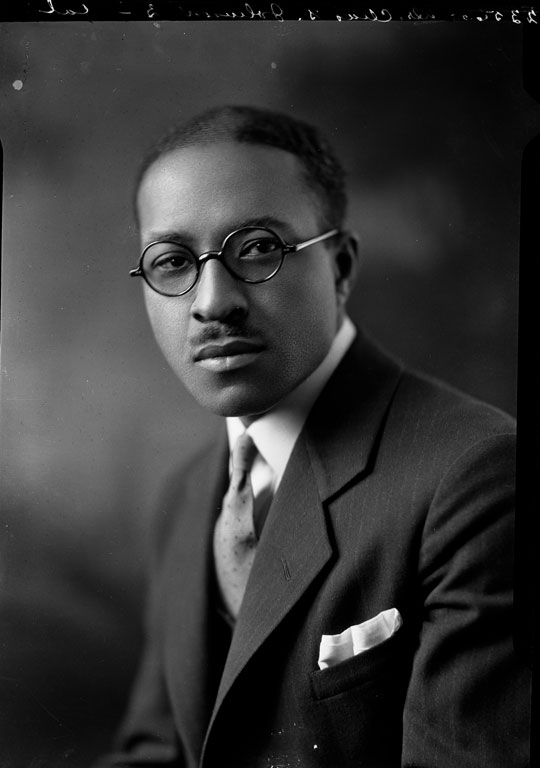Charles S. Johnson
Charles Spurgeon Johnson ( born July 24, 1893 in Bristol, Virginia; † October 27, 1956 in Louisville, Kentucky) was a leading black American sociologist who has been dealing with the situation of African Americans in American society.
Biography
After visiting the Wayland Academy and his BA from Virginia State University in Richmond, he studied Sociology with a prominent sociologist Robert E. Park at the University of Chicago, where he earned a doctorate in 1917 Philosophiae Doctor ( Ph.D.).
Due to the race riots in Chicago in the summer of 1917, his research finally The Negro in Chicago, about the cause of urban riots and their consequences, the first of many published studies of the 20th century. This highly acclaimed study led in 1921 to the fact that Dr. Johnson was elected as the research director of the " National Urban League ".
In 1921, he was research director of the Urban League, which was founded in 1910 as the Committee on Urban Conditions Among Negroes, and is considered one of the oldest African-American civil rights movement of the United States. However, Johnson's lifelong commitment to the civil rights of its minority was of opponents such as WEB Du Bois and E. Franklin Frazier as too cautious and conservative criticism.
In addition to his exerted until his death in joining the Urban League in 1928, he was appointed professor at the Fisk University in Nashville of the newly founded Institute of Social Sciences. The chair was funded by the Laura Spelman Rockefeller Memorial. With the funds of the Julius Rosenwald Fund Johnson founded the Fisk Institute of Race Relations, the first "think tank" in a predominantly black institution. After nearly twenty years of teaching, he became in 1946 president of Fisk University and held this position until his death in 1956.
Johnson occupied himself in his research, especially on issues of African-American population in the United States and published with The Negro in Chicago in 1922 its first findings on the possible cause of the race riots. Johnson praised the elimination of racial barriers in various areas of society, but he, like many African American leaders, was particularly interested in ending segregation in schools.
In the late 1940s he finally brought his achievements in the fields of education and civil rights recognition from various national and international organizations. He was one of ten U.S. Delegate to UNESCO (1946-1947), Member of the Board of Foreign Fulbright Scholarship (1947-1954) and a delegate to the General Assembly of the World Council of Churches ( 1948). He also advised three American presidents in the education and civil rights issues.
On October 27, 1956 Johnson died suddenly of a heart attack. World leaders mourned his death and raised its important role in the civil rights movement produced.
Publications
- The Negro in Chicago. By the Chicago Commission on Race Relations. The University of Chicago Press, 1922
- The Negro in American Civilization (1930 )
- Negro housing; report of the Committee on Negro Housing. Nannie H. Burroughs, chairman; Prepared for the Committee by Charles S. Johnson. Edited by John M. Gries and James Ford, The President's Conference on homebuilding and home ownership, Washington DC 1932
- Shadow of the Plantation (1934 )
- The Negro College Graduate (1936 )
- Growing Up in the Black Belt (1941 )
- Patterns of Negro Segregation (1943 )
- Into the main stream, a survey of best practices in race relations in the South. The University of North Carolina Press ( 1947).










